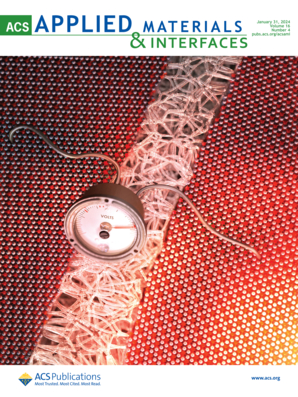M 3 Rec: A Context-aware Offline Meta-level Model-based Reinforcement Learning Approach for Cold-Start Recommendation
IF 8.2
2区 材料科学
Q1 MATERIALS SCIENCE, MULTIDISCIPLINARY
引用次数: 0
Abstract
Reinforcement learning (RL) has shown great promise in optimizing long-term user interest in recommender systems. However, existing RL-based recommendation methods need a large number of interactions for each user to learn the recommendation policy. The challenge becomes more critical when recommending to new users who have a limited number of interactions. To that end, in this paper, we address the cold-start challenge in the RL-based recommender systems by proposing a novel context-aware offline meta-level model-based reinforcement learning approach for user adaptation. Our proposed approach learns to infer each user's preference with a user context variable that enables recommendation systems to better adapt to new users with limited contextual information. To improve adaptation efficiency, our approach learns to recover the user choice function and reward from limited contextual information through an inverse reinforcement learning method, which is used to assist the training of a meta-level recommendation agent. To avoid the need for online interaction, the proposed method is trained using historically collected offline data. Moreover, to tackle the challenge of offline policy training, we introduce a mutual information constraint between the user model and recommendation agent. Evaluation results show the superiority of our developed offline policy learning method when adapting to new users with limited contextual information. In addition, we provide a theoretical analysis of the recommendation performance bound.M 3 Rec:用于冷启动推荐的基于模型的上下文感知离线元级强化学习方法
强化学习(RL)在优化推荐系统中长期用户兴趣方面显示出巨大的潜力。然而,现有的基于 RL 的推荐方法需要每个用户进行大量的交互来学习推荐策略。在向互动次数有限的新用户推荐时,这一挑战变得更加严峻。为此,我们在本文中提出了一种新颖的情境感知离线元级模型强化学习方法,用于用户适应,从而解决了基于 RL 的推荐系统中的冷启动挑战。我们提出的方法通过用户上下文变量来学习推断每个用户的偏好,从而使推荐系统在上下文信息有限的情况下更好地适应新用户。为了提高适应效率,我们的方法通过反强化学习方法,从有限的上下文信息中学习恢复用户选择函数和奖励,用于辅助元级推荐代理的训练。为了避免在线交互的需要,我们提出的方法使用历史上收集的离线数据进行训练。此外,为了应对离线策略训练的挑战,我们在用户模型和推荐代理之间引入了互信息约束。评估结果表明,在适应上下文信息有限的新用户时,我们开发的离线策略学习方法具有优越性。此外,我们还对推荐性能约束进行了理论分析。
本文章由计算机程序翻译,如有差异,请以英文原文为准。
求助全文
约1分钟内获得全文
求助全文
来源期刊

ACS Applied Materials & Interfaces
工程技术-材料科学:综合
CiteScore
16.00
自引率
6.30%
发文量
4978
审稿时长
1.8 months
期刊介绍:
ACS Applied Materials & Interfaces is a leading interdisciplinary journal that brings together chemists, engineers, physicists, and biologists to explore the development and utilization of newly-discovered materials and interfacial processes for specific applications. Our journal has experienced remarkable growth since its establishment in 2009, both in terms of the number of articles published and the impact of the research showcased. We are proud to foster a truly global community, with the majority of published articles originating from outside the United States, reflecting the rapid growth of applied research worldwide.
 求助内容:
求助内容: 应助结果提醒方式:
应助结果提醒方式:


